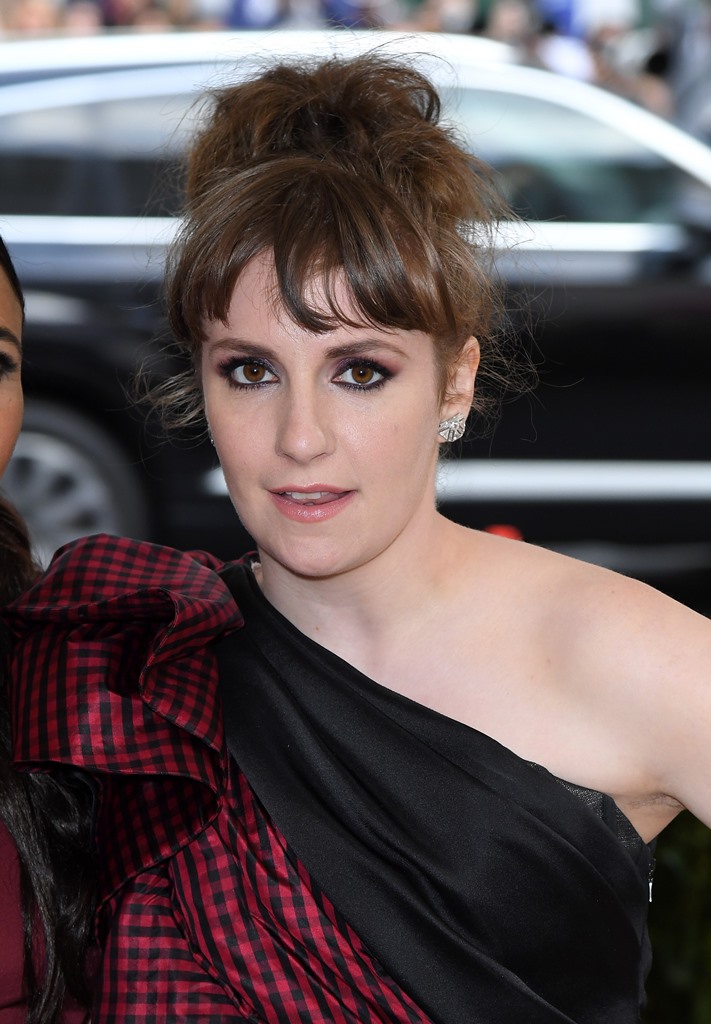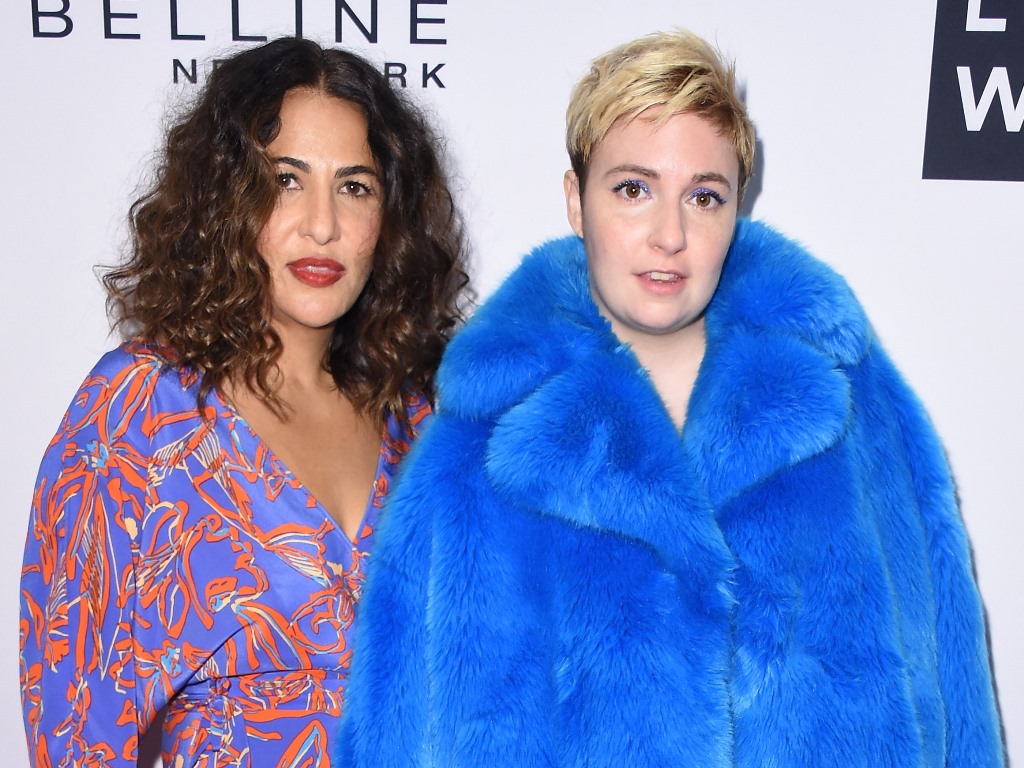Divesting from Lena Dunham



Lena F-cking Dunham. I know, I know, I swear too much and I’ll have to apologize to my mother later for starting this piece with an expletive but the first words that come to mind when I think of Lena Dunham these days are cuss words.
Author Zinzi Clemmons was much more eloquent when expressing her frustration with her former boss. Clemmons, a former writer for Lenny Letter, released a blistering statement in response to Lena Dunham’s epically self-centered and dangerous defense of her friend, Girls executive producer and alleged sexual abuser Murray Miller. Noted Millennial Feminist Lena Dunham defended a man accused of sexual abuse by a woman of colour (actress Aurora Perrineau) with a woefully misguided statement essentially calling Perrineau a liar during an ongoing investigation by the LAPD. In a joint statement with Girls showrunner and producing partner Jenni Konner, Lena calls out “the culture” for “taking down the wrong targets” and perpetuates rhetoric used to silence victims, especially victims of colour. Days later, they apologized. Classic Lena. File this under the multitude of problematic sh-t Lena Dunham has done and subsequently had to apologize for. This time, she doesn’t get to say sorry and move on to the next dumb thing. Zinzi Clemmons says she’s had enough and is calling for Lena to finally be held accountable for her actions.
“As a result of Lena Dunham’s statements, I have decided that I will no longer write for Lenny Letter. For all you writers who are outraged about what she did, I encourage you to do the same. Especially women of color. She cannot have our words if she cannot respect us.”
Whew. That last sentence knocked me square in the gut. There’s a Maya Angelou quote that has been used so often it’s become a cheesy Instagram-staple but right now it’s ringing in my ears: “When someone shows you who they are, believe them the first time.”
I don’t know why I refused to believe Lena Dunham the first time… or the second… or even the third time she showed us who she was. As a black woman, I’ve had my reservations about Dunham since she tried to sell us that she was the “voice of a generation” on a show full of white people set in New York City. So no, it’s not like I’ve ever been a big fan of hers and I’ve still only seen a handful of episodes of Girls, but after a few of her self-deprecating apologies in recent years, she convinced me that she understood her mistakes and learned from her problematic past. I started to give her the benefit of the doubt. I think I even (reluctantly) started to like her. Lena Dunham said she was talking to black women in order to better herself. She won me over in conversation with my fave Gabrielle Union. She used the right language. She used words like “intersectionality” and “privilege” and promised to use Lenny Letter to lift up voices of colour so that those voices could be louder than her own. Now I see that these were just words. IF Lena Dunham really wanted to elevate marginalized voices, she wouldn’t do it only when she was making money off their backs or when it was convenient for her. It’s not convenient to believe a victim over your friend. I’m sure it’s uncomfortable as hell to try to reconcile the fact that someone who has been good to you could have also hurt someone else. But that doesn’t mean that you should give up on believing women. Or that you insert yourself into an ongoing investigation. What could have possibly been going through Lena Dunham’s performative white feminist marshmallow mush brain that she thought this statement was a good idea?
Zinzi Clemmons says she has known exactly who Lena Dunham was since college. Zinzi “ran in the same circles” as Lena and Girls star Jemima Kirke. Don’t forget that these girls were rich, privileged and powerful even then. Zinzi says she avoided Lena, Jemima and their friends because of their “well-known racism.” They rolled with a girl who would casually drop the N word for shock value. Charming.
“I’d call their strain “hipster racism,” which typically uses sarcasm as a cover, and in the end, it looks a lot like gaslighting – “it’s just a joke. Why are you overeating?” is a common response to these kind of statements.”
Oh, I know hipster racists well. They hail from the school of thought that they can’t possibly be racists because they’re young intellectuals whose most formative years occurred while there was a black man in the Oval Office. They love Macklemore. They’ll make you feel small for politely asking that they don’t touch your hair. They’ll sing offensive lyrics while looking you right in the eyes hoping you’ll react so they can tell you to relax. They’ll preach feminism out of one side of their mouth while completely ignoring the plight of women of colour.
And this is what irks me about this whole thing the most: black women like Zinzi Clemmons shouldn’t have to give up high-profile writing jobs to take a stand against this kind of hypocrisy but they will. Black women are always at the forefront of change, sacrificing, as Zinzi put it, “some comfort and a little bit of cash” to make a point. It pisses me off because black women are still grossly underrepresented in newsrooms and on mastheads. The few of us who do have steady writing jobs are the exception, not the rule. Victims of colour like Aurora Perrineau are more likely to be ignored. Just look at the public indifference towards R. Kelly’s victims or the 64,000 – and counting—missing black girls in America. Here in Canada, we are still trying to get people to care about thousands of missing and murdered indigenous women whose disappearances have been largely ignored. Is it a stretch to connect Lena Dunham’s idiocy to the erasure of women of colour in the conversation surrounding sexual assault? I don’t think it is. This is someone who built a brand on being a young feminist. The system in which Lena Dunham has been able to thrive is the same one that centers whiteness and oppresses colour, especially when it comes to the dialogue around sexual violence.
I don’t generally like the idea of cancelling celebrities or completely writing off someone for messing up (there are glaring exceptions, of course). But how many times will Lena Dunham be forgiven before she stops believing that her ill-conceived opinions are the most important, that her prejudicial feelings deserved to be validated? In Lena Dunham’s conversation with Gabrielle Union, Gabrielle used the phrase, “pass the mic back.” I think it’s time for Lena Dunham to put the mic down.

